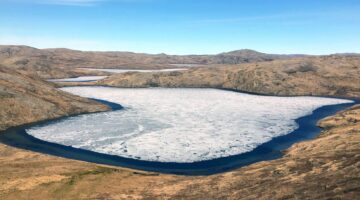Hazuková to examine whether West Greenland lakes emit or capture carbon
Next April, Václava “Vendy” Hazuková will go to an arid, treeless area in West Greenland to solve a puzzle. It’s not known how lakes there contribute to Arctic carbon cycling — the process in which carbon atoms move from the atmosphere to the Earth and back. Where carbon is — including in the atmosphere, oceans, […]
Read more
